Designed for Extreme Security
Get the Top-Rated Premium VPN with 55% Off
Protect Your Internet Privacy With A VPN
Unlimited Bandwidth And Speed
Access 5200 Servers in 55 Countries
Connect Up to 6 Devices at Once
Securely Sign up at NordVPN

Try NordVPN 100% RISK-FREE! If you don’t love it, get a FULL refund with your 30-day Money Back Guarantee
![Unlock with Nord Proxy vs VPN: An In-Depth Comparison Guide [year]](https://cdn.vpn.com/wp-content/uploads/Unlock-with-Nord.png)
Unlock Online Security and Privacy with NordVPN
Protect your online identity with NordVPN’s advanced security and strict no-logs policy
![Access World Proxy vs VPN: An In-Depth Comparison Guide [year]](https://cdn.vpn.com/wp-content/uploads/Access-World.png)
Access the World with NordVPN
Bypass geographical restrictions and unlock the full potential of the internet with NordVPN
![Advance security Proxy vs VPN: An In-Depth Comparison Guide [year]](https://cdn.vpn.com/wp-content/uploads/Advance-security.png)
Advanced Security with NordVPN
Stay safe online with NordVPN’s AES-256 encryption, Kill Switch and Double VPN
100s of Companies love NordVPN

![BBC_logo_white Proxy vs VPN: An In-Depth Comparison Guide [year]](https://cdn.vpn.com/wp-content/uploads/BBC_logo_white.png)
![buzzfeed_logo Proxy vs VPN: An In-Depth Comparison Guide [year]](https://cdn.vpn.com/wp-content/uploads/buzzfeed_logo.png)
![tedx-logo-White Proxy vs VPN: An In-Depth Comparison Guide [year]](https://cdn.vpn.com/wp-content/uploads/tedx-logo-White.webp)
![entrepreneur-logo-white Proxy vs VPN: An In-Depth Comparison Guide [year]](https://cdn.vpn.com/wp-content/uploads/entrepreneur-logo-white.webp)
![yahoo-logo-white Proxy vs VPN: An In-Depth Comparison Guide [year]](https://cdn.vpn.com/wp-content/uploads/yahoo-logo-white.png)
As VPN services go, it’s hard to beat NordVPN. It has a large and diverse collection of servers, an excellent collection of advanced features, strong privacy and security practices, and approachable clients for every major platform.
The Problem
Security, ID Theft, Online Surveillance and Geographic Issues
Without a VPN, hackers can easily access your personal information and steal your identity. Cybercriminals can easily access your credit card, login, and other sensitive data without a VPN. Your ISP, government agencies, and third parties can track your internet activity. VPNs let you access geo-restricted websites and content. Some streaming, social media, and website services require a VPN.
![firewall and antivirus software Proxy vs VPN: An In-Depth Comparison Guide [year]](https://cdn.vpn.com/wp-content/uploads/firewall-and-antivirus-software.webp)
Do Not Encrypt Your Internet Connection
Firewalls and antivirus software protect your device from hacking and malware, but they do not encrypt your internet connection. Cybercriminals can still access your personal data and internet activity without encryption.
![Online Surveillance Proxy vs VPN: An In-Depth Comparison Guide [year]](https://cdn.vpn.com/wp-content/uploads/Online-Surveillance.webp)
Not The Same Level Of Security
Proxy servers can hide your IP address and encrypt your internet connection, but they may not be as secure as VPNs. In addition, a poorly configured or maintained proxy server can compromise your internet activity.
![Hackers Theft Proxy vs VPN: An In-Depth Comparison Guide [year]](https://cdn.vpn.com/wp-content/uploads/Hackers-Theft.webp)
Does Not Prevent Hackers To Access Your Data
Strong, unique passwords and 2-factor authentication can help protect your personal data, but hackers can still access it on public Wi-Fi networks. Without a VPN, public Wi-Fi can still compromise your data.
![Using a proxy server Proxy vs VPN: An In-Depth Comparison Guide [year]](https://cdn.vpn.com/wp-content/uploads/Using-a-proxy-server.webp)
May Not Be As Reliable Or Secure
Proxy servers and Smart DNS services can bypass geographic restrictions, but they may not be as secure as VPNs. These services may be blocked or unreliable, preventing content access.
How to Get these Issues Sorted Out in a Few Clicks
VPN (Virtual Private Network) helps to solve these issues by encrypting your internet connection and
routing your internet activity through a secure and private network.
![VPN encrypts your internet Proxy vs VPN: An In-Depth Comparison Guide [year]](https://cdn.vpn.com/wp-content/uploads/VPN-encrypts-your-internet.webp)
ADVANTAGE #1
![VPN encrypts your internet Proxy vs VPN: An In-Depth Comparison Guide [year]](https://cdn.vpn.com/wp-content/uploads/VPN-encrypts-your-internet.webp)
Encrypts Your Internet Connection
A VPN encrypts your internet connection, making it more difficult for cybercriminals to monitor it and access the data it contains. This significantly lowers the likelihood of having one’s identity stolen or of being hacked.
ADVANTAGE #2
![VPN secure connection Proxy vs VPN: An In-Depth Comparison Guide [year]](https://cdn.vpn.com/wp-content/uploads/VPN-secure-connection.webp)
Secure Your Connection Even On Public Wi-Fi Networks
A virtual private network, or VPN, encrypts your internet connection and makes it possible to maintain a secure connection even when using public Wi-Fi networks. Your personal information will be better protected from hackers and other cybercriminals if you do this.
![VPN secure connection Proxy vs VPN: An In-Depth Comparison Guide [year]](https://cdn.vpn.com/wp-content/uploads/VPN-secure-connection.webp)
![hides IP address Proxy vs VPN: An In-Depth Comparison Guide [year]](https://cdn.vpn.com/wp-content/uploads/hides-IP-address.webp)
ADVANTAGE #3
![hides IP address Proxy vs VPN: An In-Depth Comparison Guide [year]](https://cdn.vpn.com/wp-content/uploads/hides-IP-address.webp)
Hides Your IP Address And Makes It Difficult To Track
By encrypting your internet connection and hiding your IP address, a virtual private network (VPN) makes it more difficult for your internet service provider (ISP), government agencies, and other third parties to track and monitor the activities you engage in while using the internet.
ADVANTAGE #4
![connect to server in a different location Proxy vs VPN: An In-Depth Comparison Guide [year]](https://cdn.vpn.com/wp-content/uploads/connect-to-server-in-a-different-location.webp)
Connects To A Server In A Different Location
Using a virtual private network (VPN) enables you to connect to a server in a different location, giving the impression that you are conducting your web browsing from that location. Because of this, you will be able to access websites and other forms of online content that might not normally be available in your location.
![connect to server in a different location Proxy vs VPN: An In-Depth Comparison Guide [year]](https://cdn.vpn.com/wp-content/uploads/connect-to-server-in-a-different-location.webp)

Available On:
Great decesion to get the NordVPN today! Click the button below and join more then 8 million NordVPN users.
![cropped-vpn-logo-square.png Proxy vs VPN: An In-Depth Comparison Guide [year]](https://cdn.vpn.com/wp-content/uploads/cropped-vpn-logo-square-e1629352068490.png)
One Click To Online Freedom: How NordVPN Solves All Your Internet Woes
Unlock the power of online privacy and security with NordVPN
Your all-in-one solution for a safe and unrestricted internet experience
NordVPN uses AES-256 encryption to secure internet connection
NordVPN follows strict no-logs policy to protect your privacy
NordVPN offers 24/7 customer support and flexible pricing plans.
NordVPN has a large network of servers for fast and reliable connections
NordVPN has user-friendly apps for all major platforms
Proxy vs VPN: An In-Depth Comparison Guide 2024
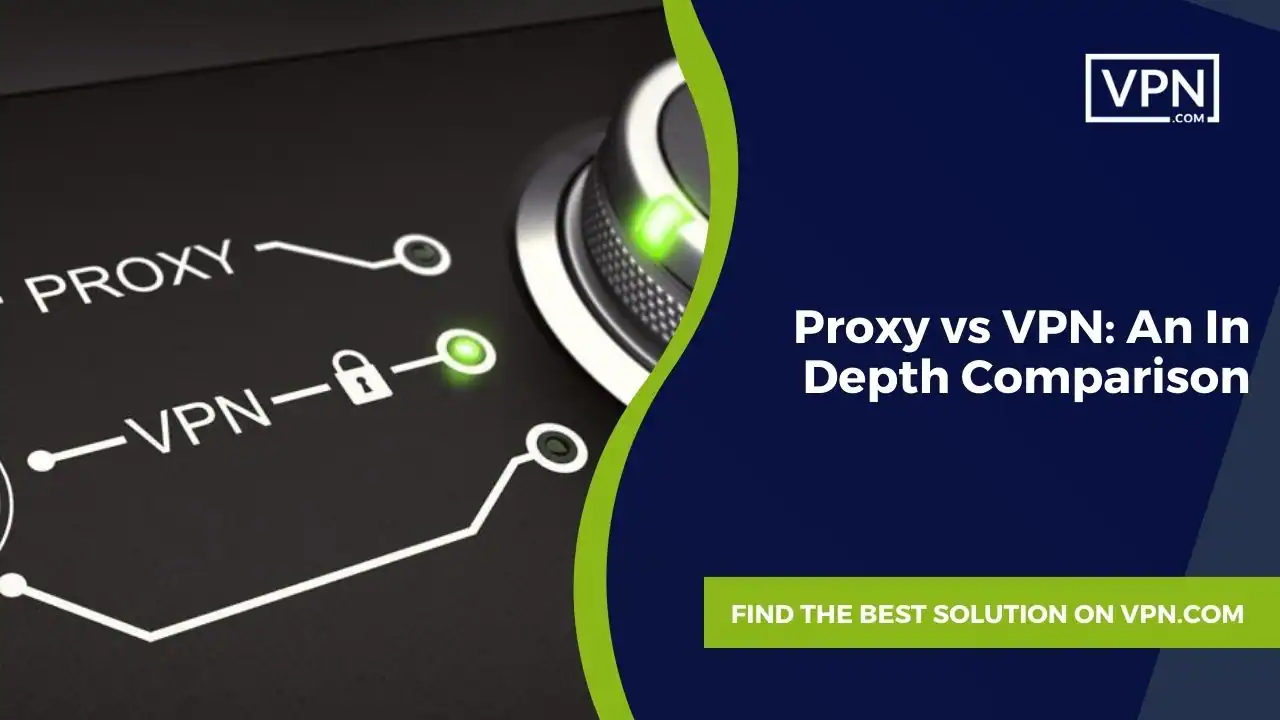
If you are an internet user then you must be one of those people who are worried about their privacy. We know that the internet has made our life easier.
But there are many challenges that we have to face because of the internet too. And the biggest challenge is our privacy. Many websites have access to our data. Even the government uses it for its own purposes.
So, if you want to have access to the internet without feeling like you are constantly seen. Then we think that you should use a Proxy Vs VPN. They will provide you with the privacy that you want while browsing. However, we all know that it is very difficult to choose between both. Because they both seem similar. That is why we are here with an in-depth comparison; Proxy vs VPN.
What Is VPN?
Virtual Private Network allows you to connect with any private network by keeping your data safe. VPN acts the same as a proxy server except in this it changes your server. And your traffic is coming from some other IP Address.
The browsing you are doing on it is totally encrypted. Because the pathway between the VPN server and your devices is end-to -end encrypted. It provides you with a platform that ensures your security.
It is a very effective network to use, especially when you are using the public internet. Because in public WiFi your data is not safe. Anyone can easily get access to your data because of the weak network. However, if you connect with your VPN first, then you can use the WiFi stress-free. Because this way it cannot be easily unencrypted.

Get Started w/ NordVPN Today
- Top-rated VPN for OS unknown
- Ultra-fast speed in US in 2024
- Save 69% off with VPN.com Discount
- Plans starting at $2.99/month
- Rated 4.5/5 on Google Play with over 825,000 reviews
- Rated 4.7/5 on Apple App Store from 6,600 users
What Are Types Of VPN?
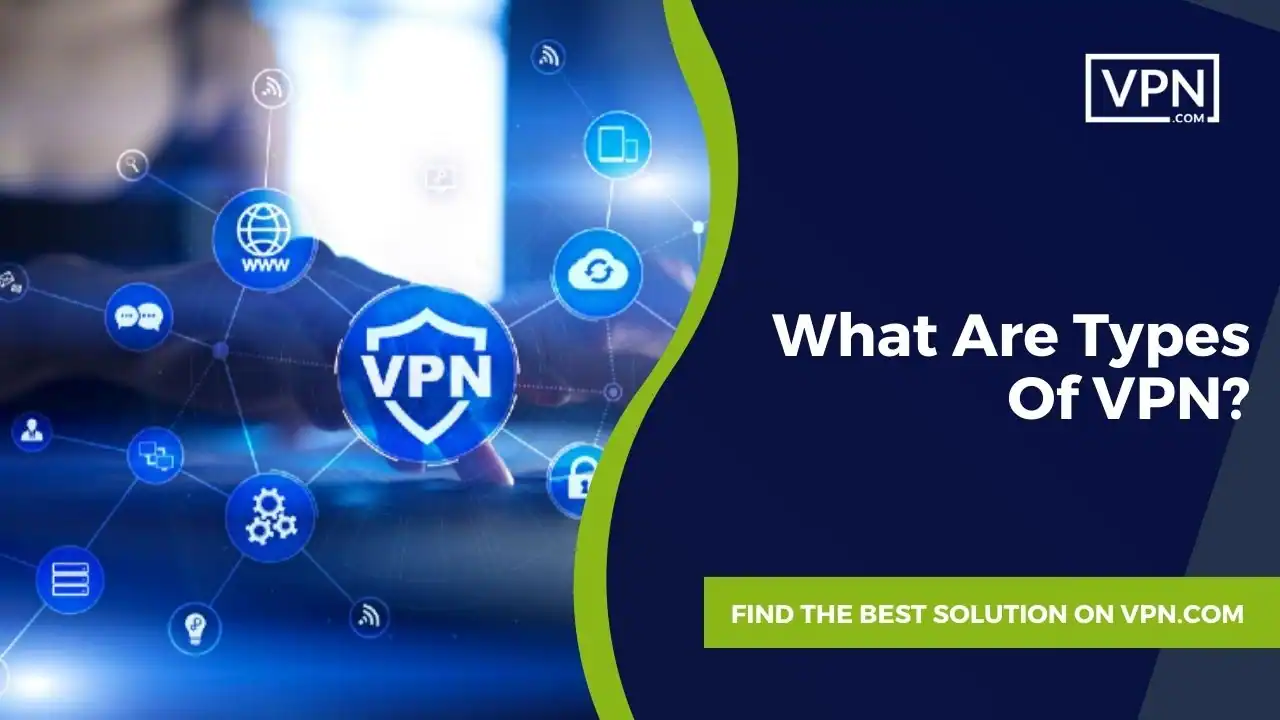
We all know that there are different types of VPNs. Each type of VPN has different features to perform. Now let’s have a look at the types of VPNs:
Remote Access VPN
It allows you to connect to any private network remotely. Doesn’t matter what place on the earth you are. It means that if you want to have remote access to your company’s file through a secure network then VPN is the best choice.
The pathway between private networks and you is the internet. Most people use VPN to access blocked websites. Also, many people know what internet security is and how beneficial it is. So to make their internet security better they use VPN.
Site to Site VPN
This VPN is usually used in huge companies. Companies who have their offices in different locations use this site-to-site VPN to keep their employees connected. We also call it a Router-to-Router VPN. By using this VPN you can connect yourself with the different locations of your office.
- Extranet-Based VPN; The VPN used to connect with the office of another company, is called Extranet Based VPN.
- Intranet-Based VPN; The VPN used to connect offices of the same company, is called an Intranet Based VPN.
Mobile VPN
It is a network that connects your mobile phone to a private network. The pathway in it is your cellular network. It provides you with a secure and private network. You can get access to the blocked websites. Also, the benefit of using a mobile VPN is that you can connect to any public internet without any stress. It will secure your data from the invasion of a third party.
What Is a Proxy Server?
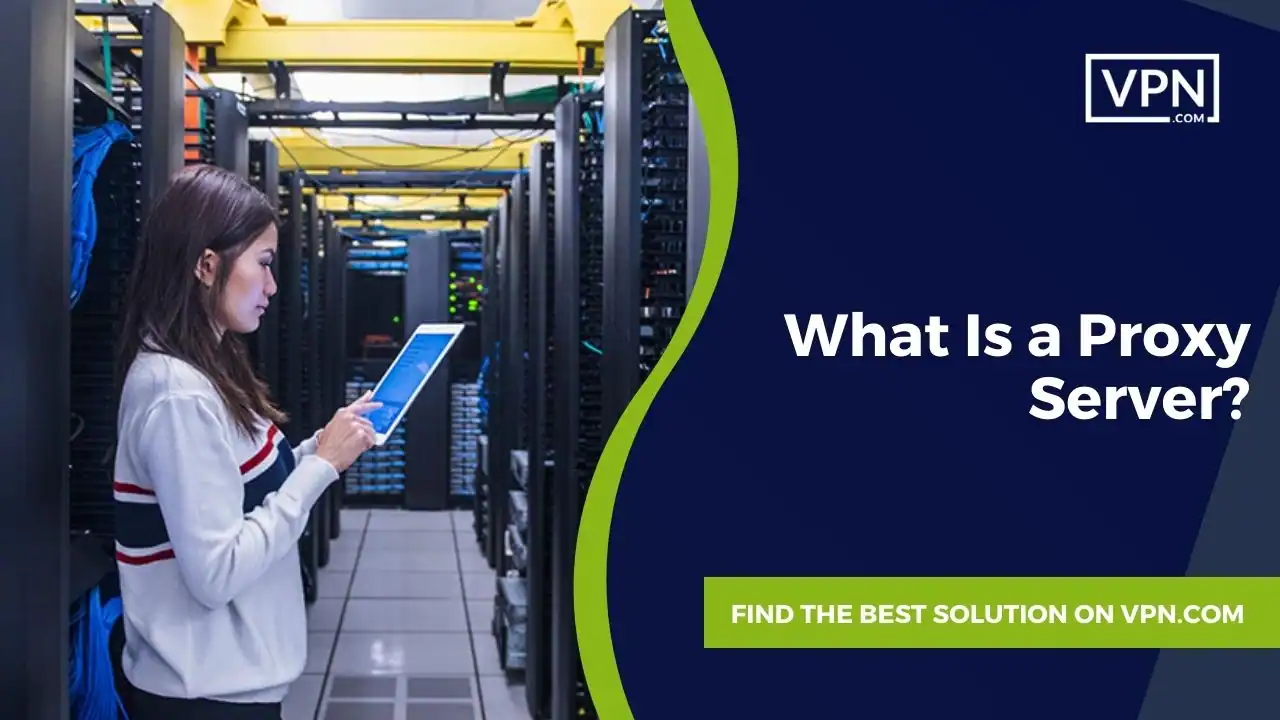
Proxy Server is basically a pathway between your device and the website that you are using. If you don’t want the website to have access to your IP address. Then you can use a proxy for that purpose. It will hide your IP address and provide you a secure and safe network.
But you should also remember one thing: the proxy will only provide privacy to one application. It will not secure your whole device. Also, it will not control your traffic. So, before using a proxy server you should know all about it.
What Are Types Of Proxy Servers?
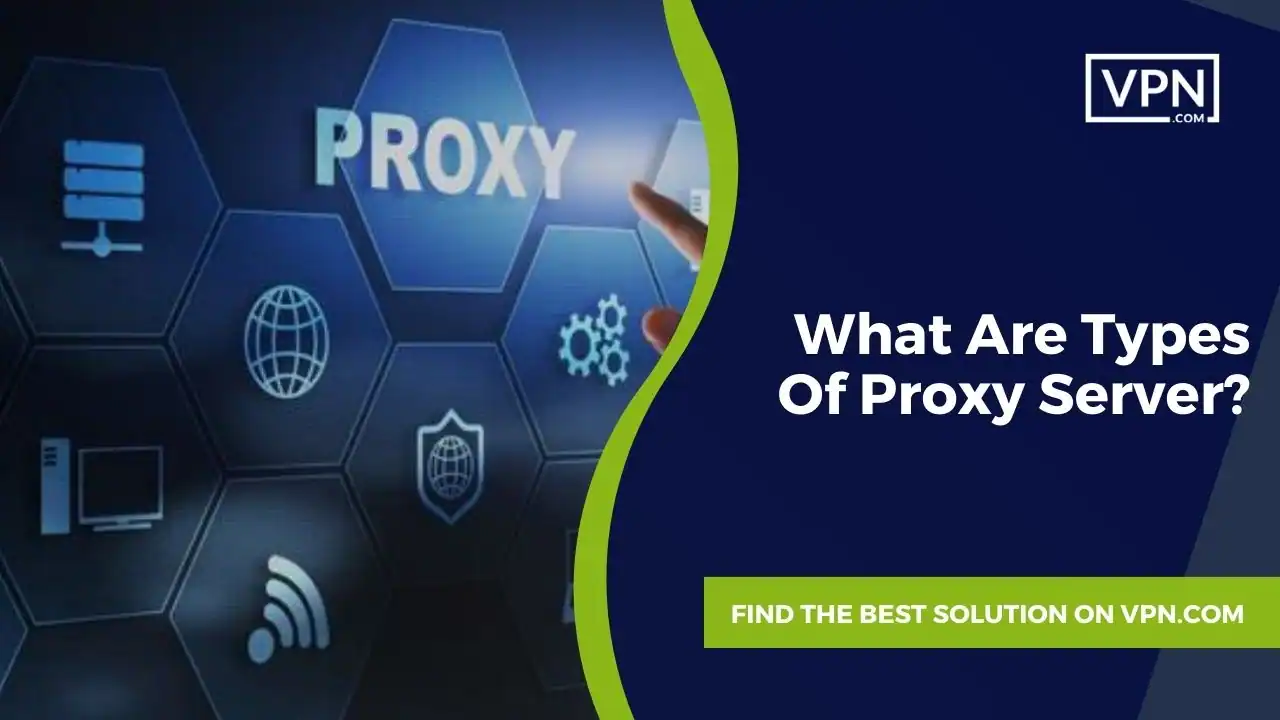
There are different types of proxy servers. You should choose the one that suits you the best. Some of the types of proxy server are:
Forward Proxy
It is basically a path between the client and internet. When you can’t reach out to any website directly then the forward proxy will act as a third party and fetch it for you. Let’s explain it to you with an example:
Imagine you are in a seminar. You have a very good question to ask from the speaker. But you don’t have enough confidence to do so. So, you ask your friend to ask the question. Your friend asks the question. And then he/she forwards it to you.
In this Example:
- You are the client.
- The speaker is the Website or Network
- Your Friend here is the Forward proxy

Get Started w/ NordVPN Today
- Top-rated VPN for OS unknown
- Ultra-fast speed in US in 2024
- Save 69% off with VPN.com Discount
- Plans starting at $2.99/month
- Rated 4.5/5 on Google Play with over 825,000 reviews
- Rated 4.7/5 on Apple App Store from 6,600 users
Transparent Proxy
It is the type of proxy that doesn’t need your special instructions to work. They will work without getting even noticed that is why they are called Transparent Proxy. Basically, it intercepts the communication between the internet and the user. Many people might not be even aware that transparent proxy is actually working. If you still don’t get it then let us explain with an example.
Assume that you are in a class. The teacher is very busy. So the teacher appoints a student to listen to your questions. The student will listen to all your requests in a way that even you will not know. And after listening to all your requests. The student will note it down and pass it on to the teacher.
In this Example:
- The teacher is the website
- You are the client
- And the student noting down the requests is Transparent Proxy.
Anonymous Proxy
It is the proxy that will make sure that whatever you are doing on the internet is untraceable. It is basically a proxy that will hide your identity and will request the specific website or network on its own. This way the website will not be able to tell who made the request. However, we can break it down for you with a little example.
Now Imagine that you are in a class. You want to ask a question from your teacher but you are afraid. So you write down your question to your friend.
Your friend is going to rewrite it with different handwriting. After changing it. Your friend will pass your question to the teacher. But now the handwriting has changed. So the teacher can’t identify who wrote it. And will answer the question on behalf of your friend.
In this Example:
- The Teacher is the website or internet here.
- You are the user.
- Your friend is acting like an Anonymous Proxy

Get Started w/ NordVPN Today
- Top-rated VPN for OS unknown
- Ultra-fast speed in US in 2024
- Save 69% off with VPN.com Discount
- Plans starting at $2.99/month
- Rated 4.5/5 on Google Play with over 825,000 reviews
- Rated 4.7/5 on Apple App Store from 6,600 users
What Is The Main Difference; Proxy vs VPN?
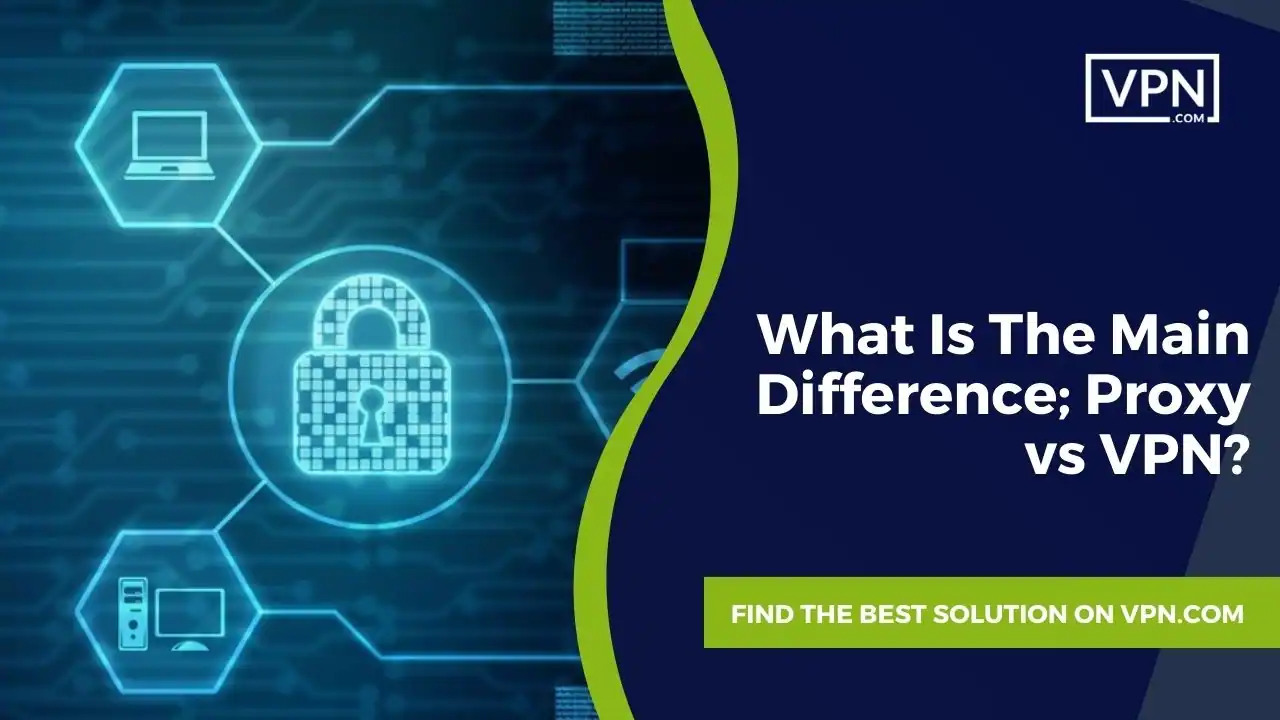
We all think that Proxy and VPN are the same thing but it is not true. There is a great difference between both and you should know what that is. That is why we are here to help you identify what is the main difference between Proxy vs VPN. Here are some of the major differences:
Function
We think that proxy and VPN work the same way but it is not true. The Proxy will basically request from your side to the server for access. In this way, you don’t have to worry about access of a specific website.
However, when we talk about VPN – we know that it is a tunnel between you and the server. No one can have access to your work. For instance if you use a VPN before using your bank account. Then it makes it impossible for the hackers to get access to your bank account numbers.
People use VPN especially when they have to use Public WiFi. However, people use proxies when they want access from a blocked website.
Encryption
If we talk about Encryption then Proxy is not something that you should look for. Because proxies will never encrypt your data. However, if you need a network that will encrypt your data so no one can have access to it. Then you should go for VPN. They will ensure to keep you safe from third parties or hackers.
Coverage
If we talk about the level of coverage between Proxy and VPN. Then we think that VPNs have an edge here too. Because VPN will provide coverage as a whole. When you connect a VPN. It encrypts every data that you will send or receive. It means that your whole device will be secured.
However, Proxy will provide privacy or security to a single application. It will not secure your device as a whole. So, if you want a network that will protect your whole device then Proxy is not something that you should go for.

Get Started w/ NordVPN Today
- Top-rated VPN for OS unknown
- Ultra-fast speed in US in 2024
- Save 69% off with VPN.com Discount
- Plans starting at $2.99/month
- Rated 4.5/5 on Google Play with over 825,000 reviews
- Rated 4.7/5 on Apple App Store from 6,600 users
Performance
Well if we talk about the performance here then we think that Proxy has the leverage. It works very fast as compared to the VPN. The reason is that it doesn’t encrypt data. VPNs might work slow because of the encryption and rerouting of the traffic. So, when we compare the performance of Proxy vs VPN. Then Proxy always takes the leverage.
Security
When we talk about security then we know that VPNs have the leverage as compared to Proxies. The proxy doesn’t encrypt your data. It means that everyone can see what you are doing. They can easily have access to your data. It means that in terms of security Proxy is not the right option.
However, we know that VPN’s will encrypt your data which means that you get a higher security here. No one will be able to access your data easily through VPN.
Anonymity
If we talk about anonymity then we know that Proxy will provide you with basic privacy. Like it will only hide IP Addresses for specific apps. It will not hide any other identifying details. It might be concerning for people who are looking for full privacy.
However, you don’t have to worry about your anonymity while using VPN. Because they will ensure that your no data is shared with the third party. And everything is kept safe and secured.
Which Is Better; VPN vs Proxy?
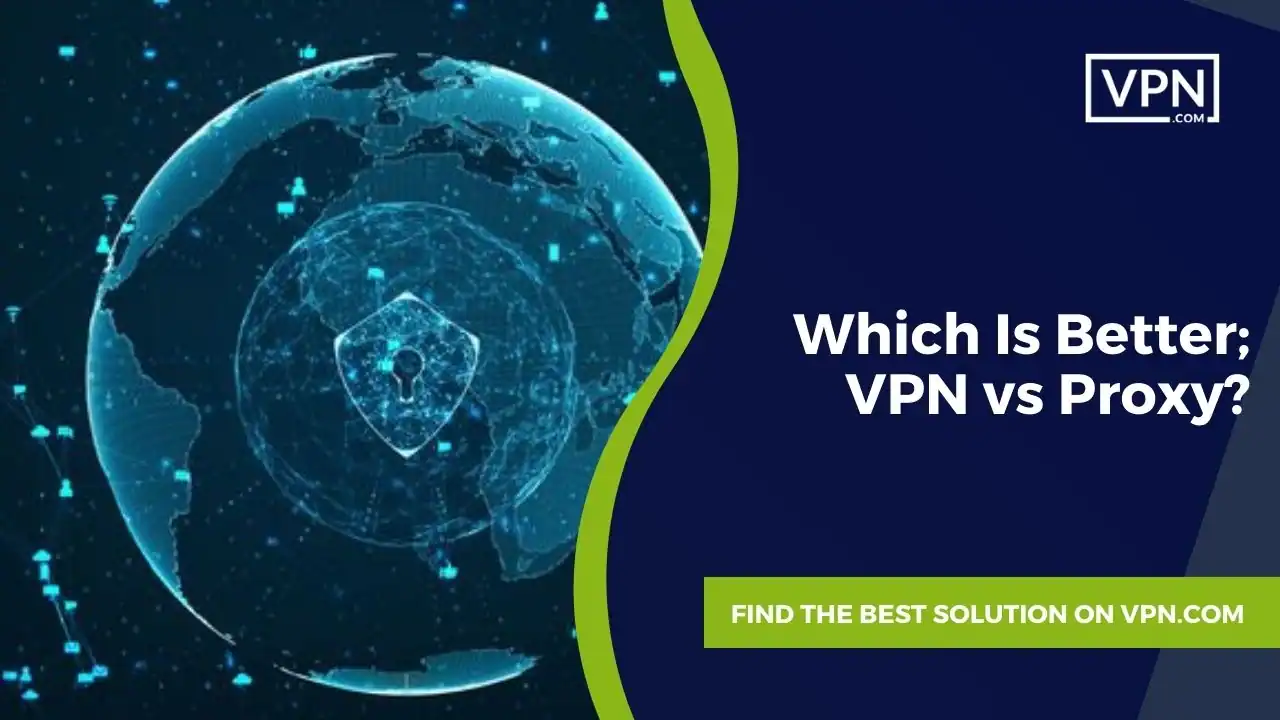
We know that it seems like both act the same. But it is not true. There is a huge difference between both. So, if you are thinking about which one is better, Then we’ll say that it totally depends on what purpose you are choosing it for.
If you want them for your company where you want to keep your data confidential. Then we think that the best option to go with is with VPN. Because they will make sure to keep your data encrypted.
However, if you just want to have access to the websites that are blocked in your region. Then you can choose Proxy for it. Because they are fast and simple to use.
How Fast Are VPNs Compared To Proxy?
If we talk about the speed then we know that VPNs are slower than proxies. Because VPNs take time to encrypt your data. They also work on the incoming traffic. However, proxies just hide your IP Address which is why they work much faster than VPNs.
Do You Need A Proxy Server If You Are Connected With A VPN?
We know that both VPN and Proxies work to hide your IP Address. But we also know that VPNs work much more than that. They encrypt all the incoming and outgoing data. Hence we can say that when you are connected with a VPN you don’t need a proxy server. Because VPNs will do the work of proxy too.
When Should We Use: VPN vs Proxy?
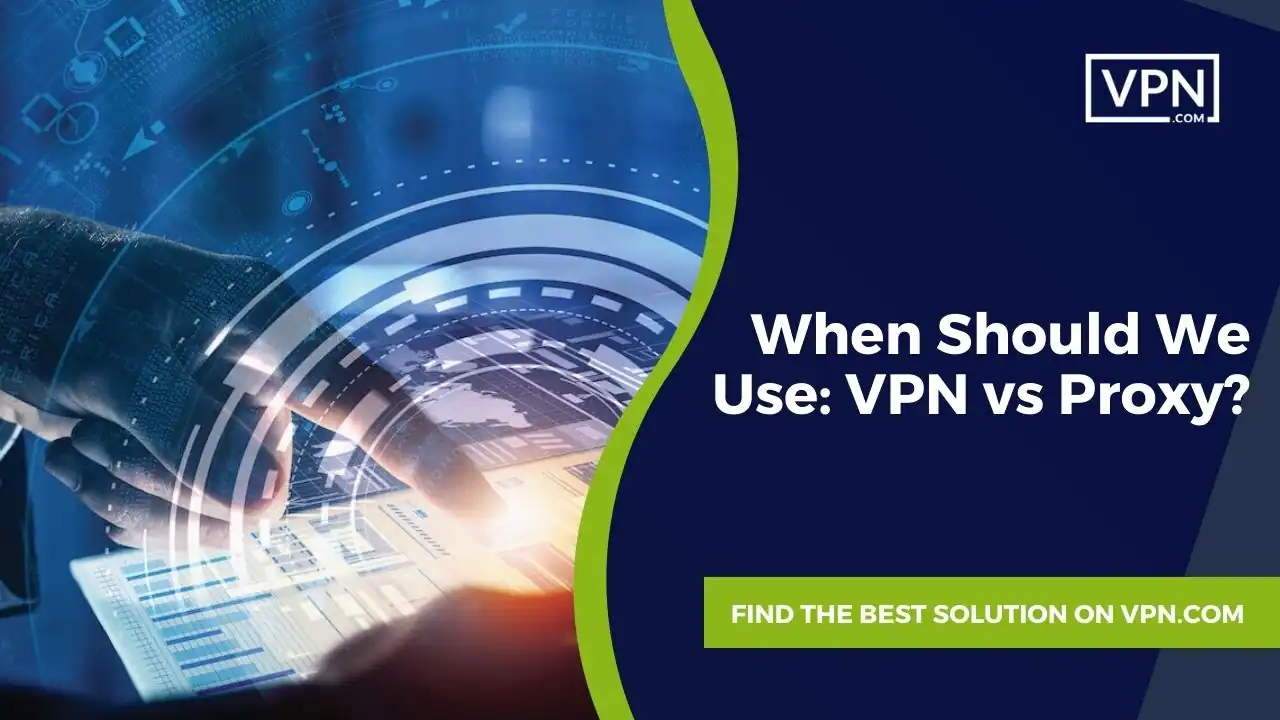
We all know what a proxy or VPN is. And now we also know the difference between them. But the main question here is when should we use them? We will tell you some of the scenarios by which you can figure out where VPN and proxy will suit you the best.
Conclusion
We can conclude it all by saying that both have their own benefits. It just depends on your need – why do you need a proxy or VPN. If you want speed then you should go with a proxy. While if you are looking for full coverage then we think VPN is the answer.
Well now we think that you know the difference between both networks. However, if you are still confused and have any questions then feel free to ask us.
Pricing & Payment Information
|
12 Month Price n/a |
|
6 Month Price n/a |
|
3 Month Price n/a |
|
1 Month Price n/a |
|
Lifetime Price n/a |
|
Free Version: |
|
Free Trial: |
|
Free Trial Days: |
|
Refund Period Days: |
|
Payment Methods: n/a |
|
Accepts Cryptocurrency: n/a |
Service Overview
|
# of Countries: |
|
# of Servers: |
|
# of Protocols: |
|
# of Connections: |
|
Unlimited Bandwidth: |
|
Business VPN: |
|
Torrenting: |
|
Easy to Find Owners: |
|
Protocols:n/a |
Features
|
14 Eyes Jurisdiction: |
|
Enemy of the Internet Jurisdiction: |
|
Kill Switch: |
|
Private DNS: |
|
DNS Leak Protection: |
|
IPv6 Leak Protection: |
|
WebRTC Leak Protection: |
|
SMTP Allowed: |
|
Double Encryption: |
|
Ad Tracking Block: |
|
Claims "100% No Logs": |
|
Claims to Work in China: |
|
Claims to Work on Netflix: |
|
Logs Kept:n/a |
Languages & Support
|
# of Setup Docs: |
|
# of Troubleshooting Docs: |
|
# of Languages Supported: |
|
Types of Support Offered:n/a |
|
Languages Supported:n/a |
Device & OS Support
|
Windows Versions:n/a |
|
Mac OS Versions:n/a |
|
Linux Versions:n/a |
|
Android Versions:n/a |
|
iOS Versions:n/a |
|
Routers Supported:n/a |
|
Browser Extensions:n/a |
|
Gaming Devices:n/a |
|
TVs Supported:n/a |
|
Other Devices:
|

![Proxy vs VPN: An In-Depth Comparison Guide [year]](https://cdn.vpn.com/wp-content/themes/VPN/images/icons/payment-methods/mastercard.png)
![Proxy vs VPN: An In-Depth Comparison Guide [year]](https://cdn.vpn.com/wp-content/themes/VPN/images/icons/payment-methods/american_express.png)
![Proxy vs VPN: An In-Depth Comparison Guide [year]](https://cdn.vpn.com/wp-content/themes/VPN/images/icons/payment-methods/discover.png)